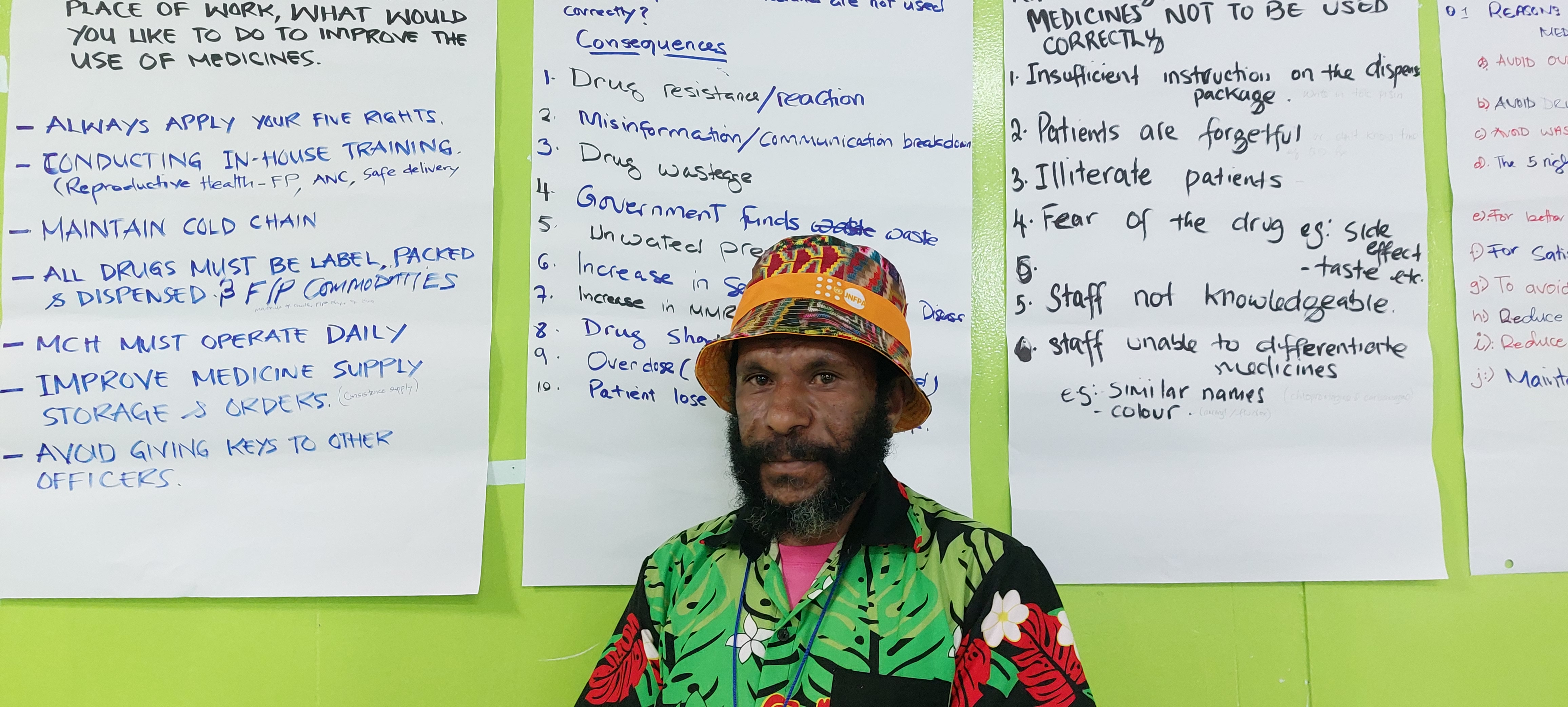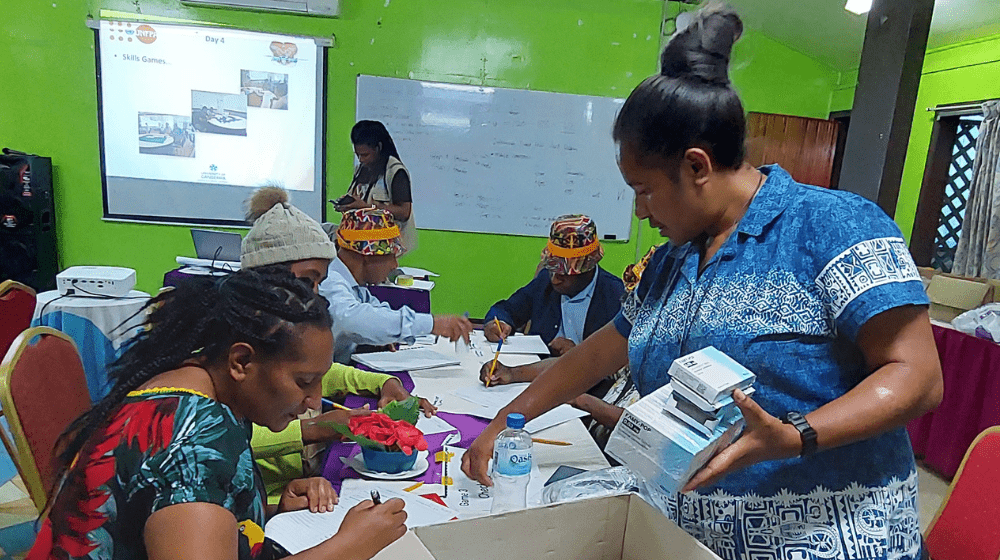Having the right equipment and medicines on hand is critical for Papua New Guinea’s stretched healthcare workforce to deliver positive outcomes for patients. As attendees of a recent UNFPA workshop learned, stock-outs aren’t inevitable - and the solution requires facilities and stores to implement some simple strategies.
Mr Walace Orivi manages the pharmacy at Mendi Provincial Hospital. As the largest facility in Southern Highlands Province, and the referral hospital for the province, the hospital serves hundreds of thousands of patients. He shared that often supplies are ordered based on educated estimations on the demand for given medicines, rather than on a formula based on actual utilisation of the medicines.
Mr Orivi said that the miscalculations not only led to stock-outs, but also to an overstock of medicines. Too much stock can be as disruptive to a hospital store as too little, as staff may not be able to store the medicines appropriately as fridges reach capacity and medicines will expire before they can be used.
He was one of several pharmacy managers and healthcare workers who joined UNFPA’s inventory management training from across the Highlands Region to learn strategies for more accurate ordering of supplies.
“When I return back to my province, I will be organising an orientation for the staff in Mendi,” said Mr Orivi. “I will improve the inventory management and quantification capacity of hospital staff.”
“This will improve the supply chain system for essential medicines.”

My Orivi shared that with these new strategies for determining stock levels he is better able to determine the frequency of re-orders and ensure Mendi Hospital maintains the availability of essential medicines in Mendi Hospital.
On the supply side, inventory management within provincial medical stores is vital to the network that keeps hospitals and health facilities stocked.
Mr. Simion Kona is in charge of the Enga Province transit medical store. These stores are responsible for the distribution of medicines to health facilities.
He joined this training to learn about stock management from the side of area medical stores. Mr Kona shared that following this training he will prepare an on-the-job orientation plan for facilities to improve stock management and reduce wastage.
“The key challenge we are facing in Enga Province is disruptions from fighting and natural disasters,” he said. “From this training, I have learned that when facilities submit well-calculated orders, they should consider a buffer that will help them keep essential medicines and contraceptives in stock during these disruptions.”

Both Mr Kona and Mr Orivi shared their enthusiasm for taking this training to their teams.
Mr. Orivi encouraged UNFPA to conduct this training for southern highland province health workers. “It will certainly contribute to the quality of health services,” said Mr Orivi. “It will particularly help maternal and reproductive health, and save the lives of mothers and children.”
This training is the latest in a series of regional activities to strengthen supply chain management across health facilities and medical stores facilitied by UNFPA with support from the Australian Government. In addition to capacity building, UNFPA and the Australian Government are supporting the procurement of essential reproductive health medicines to equip Papua New Guinea's midwies, nurses, and health officers to end preventable maternal death.


